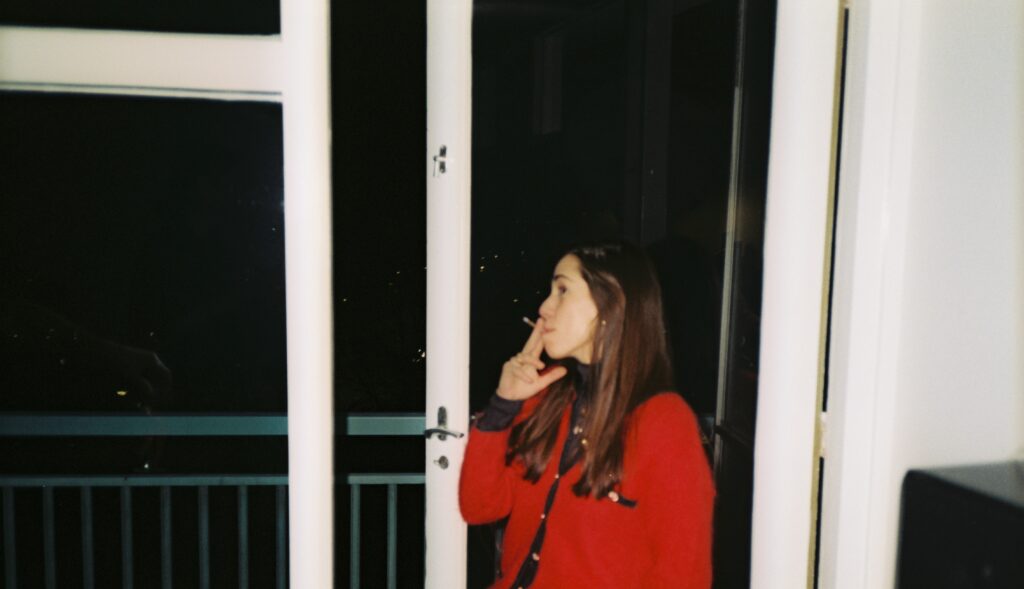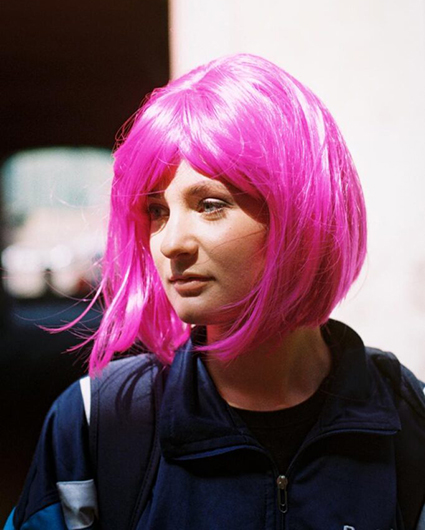Slutty Urbanism is a collective of promiscuous urbanists that was first birthed on a black sofa in Amsterdam during 2018. The urban scholars and activists involved are spread across four countries engaged in politics equal parts militant, absurdist, and filthy. A cyborg creature, Slutty Urbanism is fertilised with gender theory, digital feminism, urban sociology, and histories of urban planning that allow it to live in even the darkest of spaces and times. Slutty Urbanism wants to do away with the violent perversions of digital capitalism’s uneven urban development and binary formulations, while still caring for the transgressive potential of zeros and ones. Slutty Urbanism imagines cultivating more pleasurable and just perversions within more pleasurable and just socioeconomic arrangements.
Letizia Chiappini

holds a PhD in Sociology and Urban Studies – joint doctorate — at the University of Milano-Bicocca and at the University of Amsterdam. In her PhD research, she proposes the concept of the ‘urban digital platform’ to analyse platforms that support grassroots initiatives and practices of resistance. Her research is a comparative study based on extensive fieldwork in Milan and Amsterdam. In other projects, she investigates artistic practices concerning digital fabrication and makerspaces as an alternative mode of space production. Letizia is a researcher and activist committed to working with artistic communities in Milan and Amsterdam. She is the co-founder of Slutty Urbanism collective, and she writes for various media sources on digital platforms.
Ying-Tzu Lin

is an urban planner and PhD candidate at the Department of Human Geography, Planning and International Development, University of Amsterdam. She is the founder and editor of the mandarin web media Eyes on Place. Born and raised in Taipei, she currently lives in Amsterdam. She collects various diplomas from Agronomy, Sociology, Landscape Architecture, and Spatial Planning. In between her studies, she worked with education/pedagogy organisations, planning consultancies, volunteering in the music scene and wandering in cities. She enjoys and cares about cities, public spaces and the politics between them. Recently, she works at the intersection of topics such as street markets, children-friendly urban environments, and feminist geography.
Valeria Ferrari

Valeria Ferrari is a PhD candidate at the Institute for Information Law, University of Amsterdam. Her academic work explores the interaction between digital infrastructures, institutional powers and geography, with a particular focus on digital money and financial networks. In Italy, she took part to projects investigating the role of digital technologies in human trafficking and in the facilitation of illegal migration. She is founder and former editor of the Glossary of distributed techno-social systems, hosted by the Internet Policy Review. In non-academic contexts, she has also researched and written about the relationship between digital technologies and self-perceptions of the body. Among her interests, is the use of fiction and story-telling to narrate political struggles and enable collective readings of complex legal and philosophical issues.
Sonja Lakić

Sonja Lakić is an internationally trained architect, urban designer and planner, and a researcher with a PhD in Urban Studies, currently appointed as Marie Skłodowska-Curie-EUTOPIA-SIF Postdoctoral Research Fellow at CY Cergy-Paris Université. Her work revolves around the everydayness of contemporary cities, with a particular interest in anthropological and sociological aspects of architectural design and built environment, and, most of all, lived forms of buildings. Topics of her curiosity include (but are not limited to): notion of home and practices of homemaking, buildings as living archives, housing, homeownership and informality, post-conflict societies, open architecture, dialectical urbanism, architecture and happiness, ethics of care, emotional geographies. Sonja operates across different disciplines and scales, works visually and collects oral histories, practicing unconventional ethnography and storytelling mainly through photography and filmmaking, curating architecture, exhibitions, and her own life. Sonja is Future Architecture 2020 alumna, a member of an international ETNO.URB network, visiting researcher and a guest lecturer at ISCTE Lisbon, Universidad NOVA de Lisboa, University of Pompeu Fabra and CY AS, and has been collaborating with different institutions worldwide, such as Lisbon Architecture Triennale, MAXXI – Museo nazionale delle arti del XXI secolo, MAO – Museum of Architecture and Design in Ljubljana, Slovenia, Estonian Museum of Architecture etc.
Anastasiya Halauniova (former member)

is a sociologist that works at the intersection of urban studies and science and technology studies. Her work is set in the postsocialist cities and considers how state socialisms and their aftermath employ urban expertise to produce spaces, historical periods, and even populations as ‘valuable’ and ‘invaluable.’ Particularly, she is interested in the urban experts’ and residents’ anxiety around the ‘beauty and ‘ugliness’ of architecture in Eastern Europe. Outside the academic bubble, Anastasiya performs as a digital activist and writer. She writes for various media sources on such topics as the feminist city and capitalist afterlives of the socialist space.